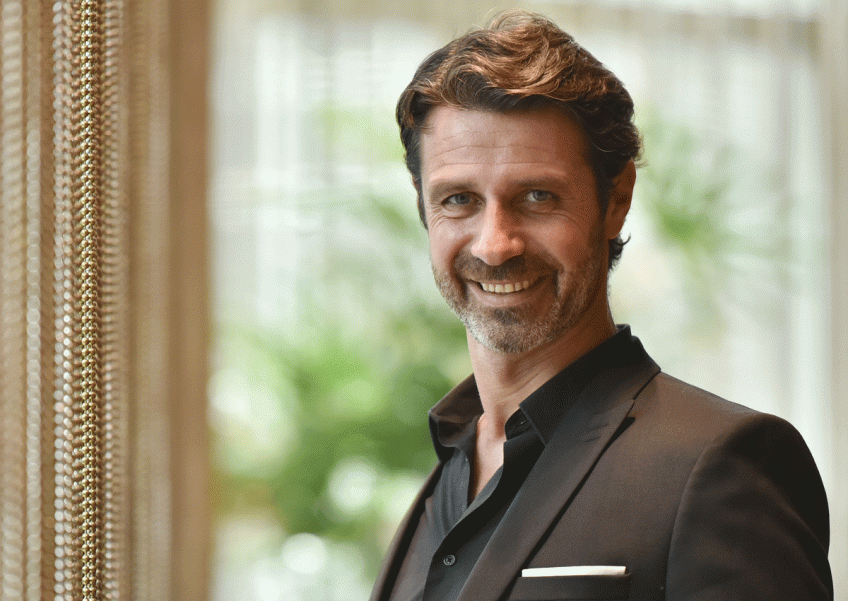Coach offers insights into Williams the champion


Tennis' resident sage, his beard trim, jeans tight, charm intact, has the gentle air of a man who knows he knows stuff we desperately want to know. But being a generous fellow, coach Patrick Mouratoglou, 45, is happy to tell tales. Like of the time he said no to Serena Williams.
You ever done on-court coaching with her?
"No. I refused. She asked me a few times."
You're kidding?
"I refused because I think that would make her weaker to think that she would need someone to win a match after winning without anyone for so many years.
"Second thing, in the Grand Slams you cannot call your coach. So if she takes the habit when she is in trouble to call someone, it doesn't make sense because our main goal is the Grand Slams and she will have to deal without a coach (there).
"One of her strengths is to figure how to win even when she is in trouble. If she takes the habit to call me when she is in trouble, she might lose this ability or make it a bit weaker, which would be a big mistake."
Mouratoglou, French and famous, is important because he is our interpreter of the extraordinary. All us normal folk ever want to do is peek within the brain of the abnormally gifted and he has access to Serena's genius, her drive, her ambition.
During the Tennis Coaches Conference yesterday he speaks, for instance, with an eloquent fervour on how champions are unsatisfied.
In 2002, Serena won the French Open but another title there eluded her for a decade. In 2012, Mouratoglou joined her, in 2013 she won the French again, but as soon as she stepped off court that day she told him, "I want to stretch". Then, he continues, "after five minutes she looked at me and said, 'Now we have to win Wimbledon'."
Serena intrudes into conversations in Singapore and slips into press conferences and yet she is not here. Her greatness makes her absence conspicuous and her greatness for Mouratoglou, under whose three-year watch she has won eight of her 21 Slams, is undisputed.
She is the greatest ever? Yes.
"Because she is the strongest player mentally of the history. Because she has the biggest serve of the history. Because she has the most power of the history. Because she is able to win Grand Slams (over) 17 years, having to face so many different types of players... and every time she found a way to win. Because she's 34 and she is still No. 1 and won four Grand Slams in a row (at 34)."
He takes a breath.
"I am sure if I think I can find 10 more reasons."
When Serena hired Mouratoglou she was already a remarkable athlete. Think of it as an exquisitely chiselled statue that only required a subtle sandpapering.
"I wanted to improve the consistency," he says. "I wanted her to have more different kinds of shots so she can adapt also to the opponent when she was not in a great day. I worked with her to have a game plan every match which she did not have before."
Different kinds of shots?
"Her forehand was only flat, no topspin, now she can do both. She can slice the backhand... she's hitting swing volleys more often.
"A lot of little things. But when you have a champion like Serena, little things make big differences."
Serena's dominance - in six years only 26 matches lost - has been so complete that defeat is a surprise. None, of course, more so than her loss to Roberta Vinci at the US Open which amputated her Grand Slam dream. A loss which led her to describe 2015 to Mouratoglou as a "terrible year". And a loss for which he readily wears some responsibility.
"Obviously she didn't play her level so I should have felt that before the match and I should have found a way, speaking to her, that she would play better."
Was she nervous?
"I think she had pain in her knees because that was the first thing she told me in the morning - 'My knees are killing me today'. Also because she was two matches away from the Grand Slam (and) the stress went to another level. I should have felt it and should have talked to her in a way so she would have dealt with it better."
Yesterday, he says, Serena returned to practice. Next month, he added, she will be in Nice at his academy for six weeks of pre-season work. Nothing stays unchanged in sport except their ambition.
"At the start of 2015," he says, "journalists asked me what is the goal. I said to win four Grand Slam (titles). They said this is crazy. I said this is not crazy. She won four in a row, not four in a year, but she was two matches away."
So then, same goal for next year.
"Of course," he says with a smile.

This article was first published on Oct 27, 2015.
Get a copy of The Straits Times or go to straitstimes.com for more stories.